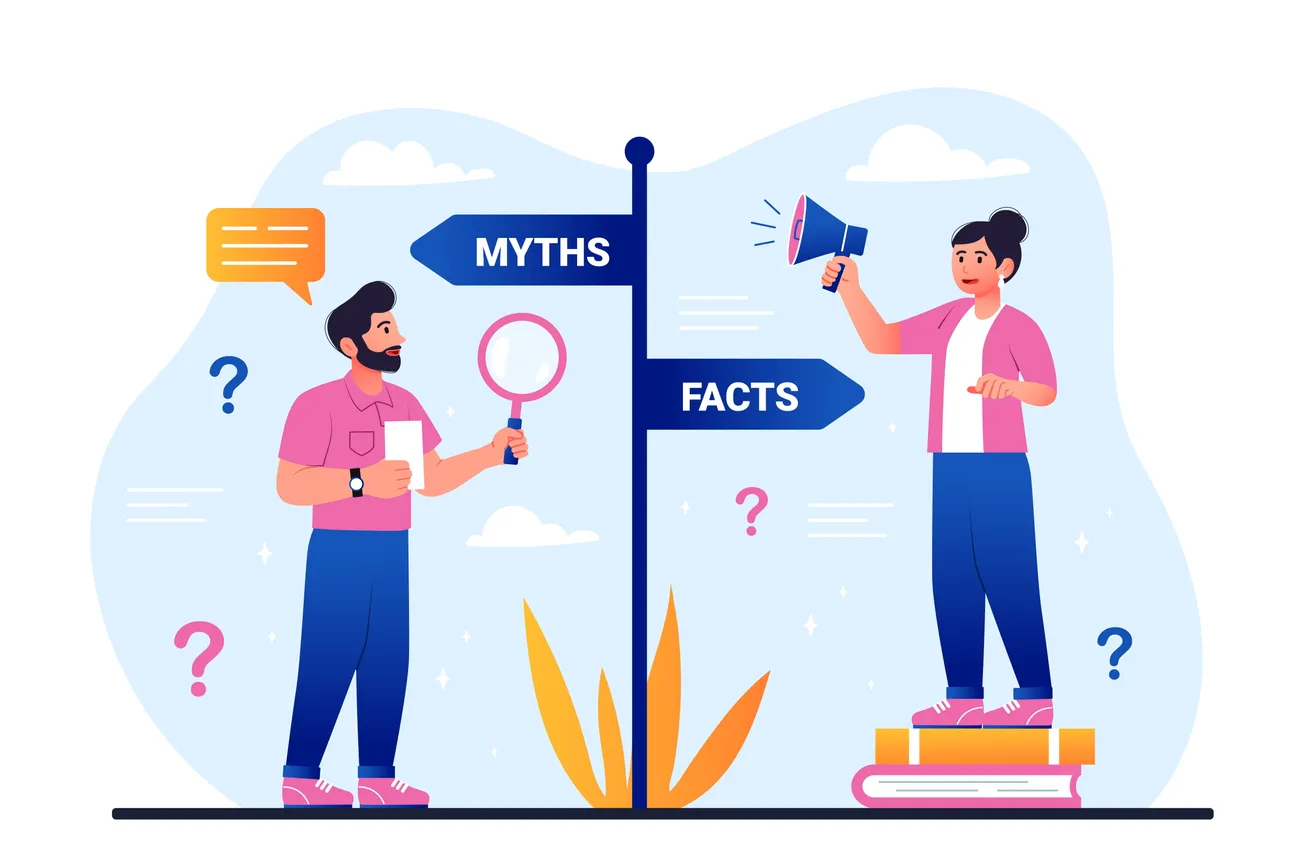A couple of years ago, I was helping a friend rewrite their resume. Nothing fancy. Just a favor. But somewhere between fixing their bullet points and Googling how to make “managed a team” sound less like “bossed people around,” I had this weird realization:
People hate writing about themselves. Like, really hate it.
And they’ll pay someone gladly to do it for them.
That was the lightbulb moment for me. A resume is just personal branding in disguise. It’s not about what someone’s done, it’s about how they make someone feel. The subtext, the narrative, the weird little space between bullet points.
So, I started digging to build my next resume building business.
Resume writing isn’t just a side hustle. It’s a legit digital business opportunity. Low overhead, high demand, and bonus. People need someone who can make them sound like someone worth hiring. Someone who can translate "I did a lot of Excel stuff" into "I optimized operational workflows across cross-functional teams."
For Who Should You Build Your Resume Building Business?
I asked this answer at the very first moment I decided to start this business.
Short answer: Everyone.
But let’s break that down before you go wild on Fiverr or something.
Source: Coherent Market Insights
There are job switchers. These burnt-out corporate employees want a clean exit and a new start.
New grads. These are the overconfident people who think their 3-month internship at a startup is enough to get them hired at Google. But, ultimately, their disorganized and not-fitted resume will not help them to land their dream job.
And then there are returners. Moms. Career-breakers. Folks who've been off the grid and are scared sh*tless of the modern job market.
Take the examples of BeamJobs. They created a blog posts with templates for stay-at-home moms. These kinds of specified templates always give people value what they want.
Different people, different stories. Which means different positioning.
You can’t write the same kind of resume for a tech poeple and a nonprofit warrior. You just can’t.
So the moment you figure out who you're best at helping (and who exhausts you)? That’s the moment your business starts to breathe.
Setting Up The Perfect Business Model (My Personal Experience)
You could offer one-off resume services. That’s the default.
One client. One document. One invoice. Done.
But that gets old fast. And inconsistent. And honestly, if you're not charging premium rates (which takes time, confidence, and a niche), you're gonna be stuck doing “$49 resumes” for people who ghost after revisions.
So here’s what helped me:
- Packages – Resume + Cover Letter + LinkedIn Optimization.
- Retainers – Career coaching or multiple rounds of updates.
- Templates + DIY Kits – Scalable. Passive-ish. Sell while you sleep? Yes please.
Once you've written 10 resumes for digital marketers… You know the patterns. Package that knowledge. Sell it.
And before I forget, you’ll need tools. Not a million apps. Just the right handful:
- A simple website. Squarespace, WordPress, Webflow, whatever. You don’t need bells and whistles, just a clean space to say: here’s what I do, here’s how I can help, book a call. I personally used WordPress as it is safe, easy to customize, and good for SEO.
- Calendly or TidyCal. For bookings. Because endless back-and-forth emails about availability are a slow death.
- Google Docs or Notion. For writing and delivering resumes. Not everything needs to be in a fancy Canva file (though you can do that too). There is a better alternative I used. I will describe it a little bit later.
- Stripe or PayPal. For taking payments like a pro. Stop waiting on bank transfers that never come.
- Lead magnet + email funnel setup. Okay, this sounds scarier than it is. Use ConvertKit, MailerLite, or even Gumroad if you’re lazy like me. Offer a free checklist (“Top 10 Resume Mistakes to Avoid”) in exchange for emails. Then follow up with value, value, soft pitch, value.
- Templates. Not just for resumes but for intake forms, client onboarding, revision feedback. You’ll thank yourself when you’re not writing the same email 400 times.
When I noticed that my client base is growing and I have to build a team, I made a twist.
I searched for plugins (as I built my website on WordPress) that can help me to build an automated system to sell my service. My target was to find a complete solution where I can build my own templates, integrate AI (as everything is going on AI), and other facilities which a resume writer can manually do for a single person.
I searched with “white label resume builder” and their I found a plugin that can meet the expectation. So, I went for it. But, the real part truth is, you have to bring the client first.
Bring Your Clients with Content & SEO
I didn't know what I was doing at first. I did keyword research for my blogs, found some great keywords to write for and wrote them too. The result??!!
My “blog” section turned into a sad and boring corner of the internet with titles like “Resume Tips 101” (blech). No traffic. No clients. Just vibes.
Then I thought smarter. I started writing for people’s search, not just for Google Ranking. Things like:
- “Best resume format for remote jobs”
- “Resume example for marketing coordinator with no experience”
- “How to write a cover letter if you hate writing cover letters”
It’s niche, sure. But that’s the point.
Write what people are literally typing into Google at 2 a.m.
They’re not searching “how to optimize your professional brand communication statement.” They’re typing “help me write my resume I suck.”
Give them that. The real stuff.
You can take an example from Enhance CV. They publish small informative blogs on small topics that people are actually suffering and looking for answers.
And here’s the part people skip but really shouldn’t: social visibility.
Let’s talk LinkedIn.
Not just a resume parking lot anymore. LinkedIn has become this weird mix of self-help seminar, job fair, and group therapy and it works, especially for resume writing.
Here’s how I used it (and still do):
- I posted short, punchy tips. One tip per post. No “threads.” No fluff. Stuff like “If your resume starts with 'results-oriented professional' - delete it. Start again.” Those got shares.
- I commented genuinely on job seekers' posts. People announcing layoffs. Frustrated folks saying they’ve applied to 200 jobs. Not to pitch. Just to be human.
- I updated my profile to speak to the person who’s struggling. Not my peers. Not recruiters. My ideal client. “I help people tell their messy job story with confidence.” Something like that. Warm. Non-corporate.
Leads came in slowly, then steadily. Quiet DMs. “Hey, I saw your post… do you offer resume help?”
You can even use Quora!
Quora is weird. But in the best way. A graveyard of oddly specific questions, and if you dig around, your people are there. Asking:
- “Should I lie on my resume if I have a gap?”
- “How do I make my resume stand out with no experience?”
- “Can someone review my resume for free?”
You answer. Thoughtfully. Not spammy. Just one paragraph of real value + a gentle link back to your blog or service.
The trick? Consistency. And resisting the urge to sound like a robot. Quora works when you show up as a person, not a brand.
Some of my first clients came from a random Quora answer I wrote in sweatpants at 1 a.m. I didn’t even link to my site. They Googled my name. Found me. Hired me.
So yeah. These platforms aren’t just for scrolling, they’re for planting. And if you plant enough honest, useful stuff, it grows.
How Will You Earn? (The Monitization Ninja Technique)
Let’s be real: You are working hard not only for helping people, you need to fill your belly too.
Here’s where everyone gets stuck.
How do you price this? What do you actually include?
Okay. Here's what worked for me (and a few others I’ve helped):
Starter Pack:
- Resume Rewrite
- 1 revision round
- PDF + editable file
- Price: $99–$149
Pro Pack:
- Resume Rewrite
- Cover Letter
- LinkedIn Bio Revamp
- 2 revision rounds
- Price: $199–$249
Premium (for those who hate job searching):
- Everything in Pro
- 1:1 Zoom Coaching (30 mins)
- Custom job hunt checklist
- Pricing: $299–$349
You can change the deliverables according your ability and what are your competitors selling. The real point is: make it feel like they’re buying a solution, not just a document.
Here’s what you can do for extras:
- Upsells – LinkedIn revamp? Mock interviews? Cover letter bundles?
- Digital products – Resume templates, interview cheat sheets, Notion job search trackers (yes, people love this stuff).
- Courses/workshops – “Land Your First Job” series for freshers. Or career change bootcamps. Record once, sell forever.
- Affiliate links – Tools you already use. Resume design software, domain names, AI job search platforms.
Point is, your business doesn’t have to stay a one-lane road. You should branch out. Scale continously.
You just need a system. Either you can build it or buy it from who others are selling.
Case Study of a Successfull Resume Bulding Business (Not Others, Take Mine)
I didn’t go viral. I didn’t run paid ads (at least, not at first). I just wrote.
I did specifically 3 things:
- Every week, one useful, stupidly specific blog post.
- Every month, a new lead magnet.
- I optimized for keywords like “resume writer for product managers”
And finally, 2 month after launching my business - Google started sending me traffic.
Not thousands. But dozens. Then hundreds. Then booked out.
People don’t hire you because you’re the most qualified. They hire you because they feel something when they land on your page. When they read your posts. When they email you and you don’t sound like a bot.
Give them that.
Show them you’ve been in their shoes. That you’re not judging their 3-month job hops or career gaps or weird detours. That you can take their jumble of life and turn it into a story that feels true and sounds sharp.
I wasn’t some resume wizard. Just consistent and took the right decision and right tools in the right time.
What worked? What didn’t?
So let’s talk about how I got clients in real way. Not the “six-figure in six weeks” nonsense, but how some of the things you should do and some things you don’t.
What worked
- Being a real human. I wrote like myself. I didn’t try to sound like some “Career Architect™” or “Professional Branding Strategist” (ugh). I was just a resume nerd who gave a sh*t. People felt that.
- Warm intros from old clients. I didn’t even ask, honestly. But when I over-delivered for someone, sent an extra version, gave job search tips, fixed their LinkedIn headline for free, they’d send a cousin, or a friend, or that coworker who just got laid off. Word-of-mouth is slow, but sticky.
- Answering emails like I cared. Not some canned “Thanks for reaching out! Here is my pricing sheet.” I’d respond like: “Hey Sarah, I read your message. sSounds like you’ve had a weird ride at your last job. We can 100% make that sound less chaotic on paper.” Boom. Connection.
- Creating tiny wins for free. One time, I posted a Google Doc: “10 resume phrases hiring managers are sick of.” People shared it like wildfire. That doc brought in more traffic than my entire blog that month. Tiny value = big trust.
- Refining my intake form. This one’s tactical. I used a Google Form to qualify leads. Asked about their job level, goals, budget range. The minute I added a “Why do you want to work with me?” question, I stopped getting ghosted. No idea why. But it worked.
What didn’t work
- Discounts. Nope. Every time I ran a “$30 off!” promo, I’d attract clients who wanted everything for nothing. The ones who asked for 9 revisions, complained about font sizes, and emailed me on Sundays. Never again.
- Cold DMs. I’m embarrassed. I tried this for a week. “Hi! I help job seekers optimize their resumes…” It felt gross. It was gross. And it didn’t bring a single client. If you’re gonna reach out cold, do it with heart. Not copy-paste desperation.
- Facebook groups. I mean, maybe they work for others. But all I got were MLM pitches and “Can someone review my resume for free plz” messages. The effort-to-return ratio? Brutal.
- Trying to sound “professional.” The moment I stripped the jargon, dropped the stiff tone, and just... showed up like me? That’s when things shifted. I wasn't “offering services.” I was helping people tell their messy, beautiful work stories. That’s the thing they paid for.
So... should you try this?
Yes or maybe. If you think you need a side hustle and also which can give value to people.
Think like these:
- If you love words.
- If you love designing people’s scattered information about their career paths and helping them tell a story that doesn’t make them sound like a robot.
- If you like working quietly but making a loud difference.
Then yeah. Try it. Do it small. Make it bigger.
The resume business isn’t flashy. But it’s deeply useful. And maybe - just maybe - that’s the real flex.










